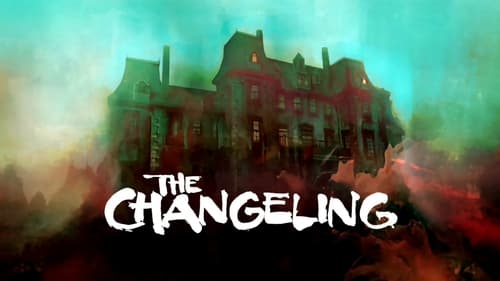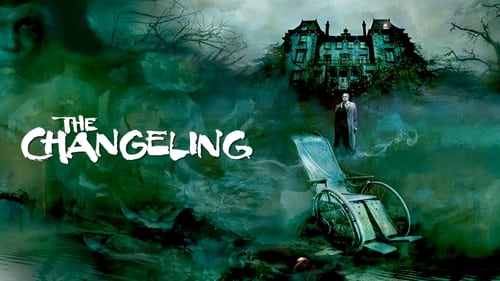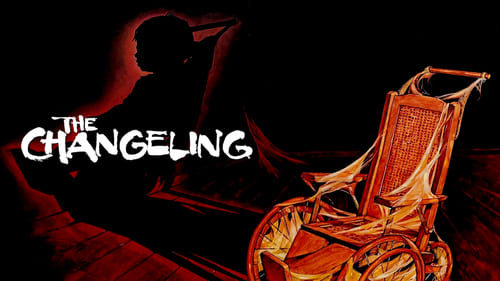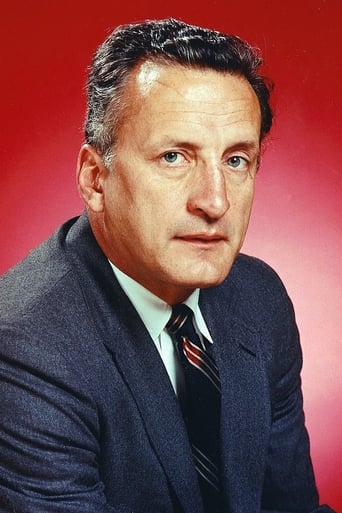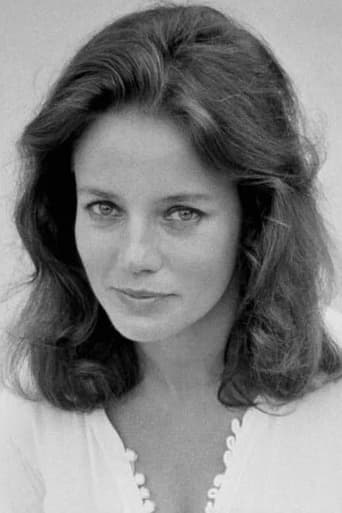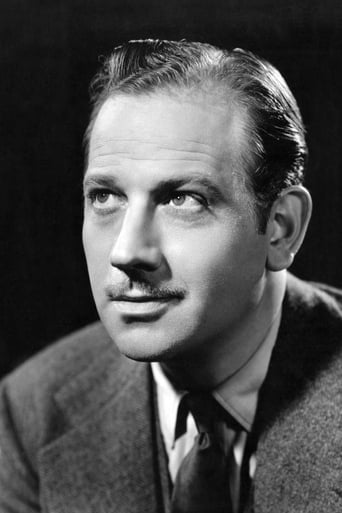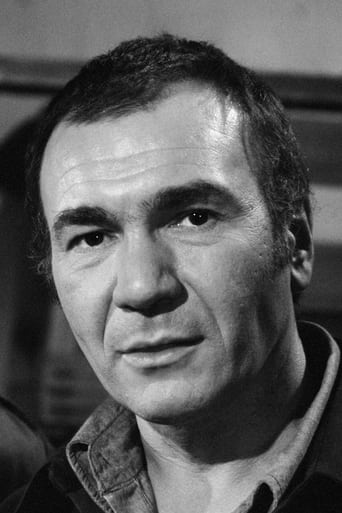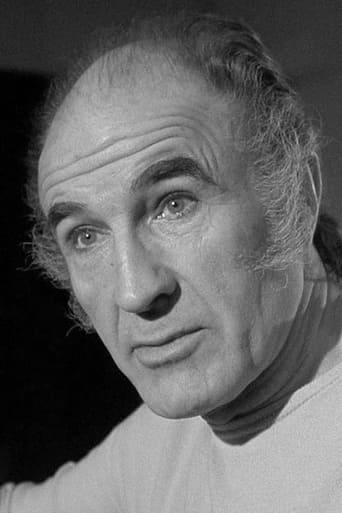Pacionsbo
Absolutely Fantastic
Manthast
Absolutely amazing
Micah Lloyd
Excellent characters with emotional depth. My wife, daughter and granddaughter all enjoyed it...and me, too! Very good movie! You won't be disappointed.
Billy Ollie
Through painfully honest and emotional moments, the movie becomes irresistibly relatable
WisdomsHammer
First of all, I highly recommend this. You can read all the other reviews to hear just how good and scary this thing is. I agree. I just want to get something off my chest.It's not much of a spoiler, but there is the ghost of a young boy in this movie who is never seen, only heard, and the voice is absolutely terrible! It sounded like a grown man poorly trying to imitate what he thought a weak and sickly boy sounded like. It's the worst, most annoying, and least terrifying voice you could imagine. If this were some kind of comedy farce, it might be perfect, but that's far from the case in this movie.When the rest of the movie is so good, including casting, how in the world could they get this so wrong?? Unbelievable.There. Rant over. I really do recommend this movie but that one thing just really bugs me.
NateWatchesCoolMovies
I love a good old fashioned creaky haunted house story, and HBO's The Changeling is one of the best, and most under appreciated spooky tales out there. Like I say time and time again (no doubt sounding like a broken record at this point), real effective horror lies in atmosphere and the buildup of tension, chilling our spines instead of bombarding us with tasteless dismemberment. The Changeling takes its time in establishing cozy atmosphere and engulfs us in a gigantic New England mansion (actually Shaughnessy for anyone who can tell), inhabited by the lonely, desperate ghost of a young boy who met a tragic fate there many decades earlier. George C. Scott is the musical composer who moves in all by himself, seeking solitude as he nurses the grief of losing both his wife and daughter in a car accident. He's barely there one night when strange things begin to happen; rhythmic banging from some far off room, eerie crying noises, doors opening and closing of their own accord and a mysterious toy bouncing ball that ominously follows him around. Saddled with an already troubled mind, he sets out to learn the origins of the ghost and resolve the situation, putting it to rest. The story is smart and succinct, involving ancestral deception and an elderly US Congressman (Melvyn Douglas, stealing every scene) with ties to the past. It's never too complicated or busy, always keeping it's cool and reigning in the frightening moments in a minimal fashion that pays off greatly. The lush, overgrown Vancouver locale makes a great setting, almost Stephen King like, and the house itself is a towering cluster of dusty hallways and wide open ceilings that shield ancient secrets and watch over anyone who sets foot inside with an unseen eye. I never thought a bouncy ball and a small children's wheelchair could raise such goosebumps, but when used as well as they are here, in scenes which set up the creep factor wonderfully, they'll get to you big time. Scott is weary and wary, but has a strong sense of compassion for the restless spirit that shows in his baleful, ice blue eyes and gives him the charisma a horror protagonist needs. HBO original films are almost always hidden gems of humble craftsmanship and breezy, effortless skill, whatever the genre. Here they've tried their hand at the ghostly fright flick, and wrought one of the best I've ever seen.
stjohn1253
Haunted mansions persist as mainstays of ghost stories to this day, as they should. They exude shadowy atmosphere and hold such promise of fright--only, however, when handled with subtlety. The Changeling, unfortunately, delivers an in-your-face presentation of a haunted house.The mansion works visually, but Director Medak doesn't tease the audience. For example, Scott composes at the grand piano and discovers a broken key. He subsequently leaves the the room, and the camera slowly zooms in on the keyboard where the "broken" key suddenly plays unassisted by a living hand (as so predicted by the lens's focus). Had the camera panned away from the piano, and just before the change of scene there floated the faintest possibility of that key mysteriously delivering a note, the viewer would have wondered: "Did I just hear that or not?" That ambiguity would have instilled a sense of disquiet, exactly what a well-made horror film should do.Other missed fright opportunities abound. A wheelchair careens after Van Devere, ostensibly to drive home the proof of a spirit. Really? Wheelchairs have built-in negative connotations, but their ability to accelerate frantically hardly qualifies as one of them. Why couldn't the chair simply have moved a few feet from its last observed location, or perhaps have changed directional orientation toward the music box or such? At another time, the last fond memory of Scott's deceased daughter, a rubber ball (A rubber ball? Most young girls have favorite dolls or stuffed animals, don't they?), bounces down the staircase of its own accord. Scott takes this treasured memento, drives to bridge, and throws it into the river, tired of the damn thing bouncing around the house and obviously disregarding its sentimental value. Low and behold, the screwy ball comes bouncing down again. Scary? No. A clumsy attempt at scariness? Yes.The list of squandered opportunities goes on and on, but the loss falls short of totality. The genuinely haunting voice of disembodied Joseph remains as the one truly eerie element of this film. The rest of The Changeling simply fails to deliver.
Leechpm
Sometimes a movie can have everything at its fingertips, then get its fingertips chopped off in some horrible crash. I can imagine Peter Medak as the 1970s ended and the 80s began, reflecting on how horror had developed in the previous decade, the removal of censorship twenty years ago opening the door for blood and guts to splatter all over the industry. Medak decided to turn from the new and look back on a much quieter old, directing The Changeling, a haunted house flick relying, as the tradition goes, on strange noises, unexplained occurrences, communications with the dead, and, most of all, the absence of splattering bodies.George C. Scott plays John Russell, a composer, professor, and family man who loses his wife and daughter in an auto accident. To escape their memories he moves to a new house and tries resuming his life, but strange events begin, and something in the house won't let him forget his dead family. It follows closely in the footsteps of Don't Look Now, if Don't Look Now had more genre and less sense, then butchered its own ideas.Medak handles his film with spectacle. Gothic architecture, golden walls, a large stairwell winding to a mysterious attic, and various antiques all decorate John's new home, shot beautifully with the camera floating from room to room in a never-ending pan, wide shots showing the vastness of the mansion, and later there's a shot of a well, looking first in from above, then out from below. Also, Rick Wilson composed a nice piano score. So even the film strikes its logical bottom, everything looks at least aesthetically pleasing.But as far as the plot goes, the crash is horrific, and then my heart ripped in half as the camera and John both loomed around the city, now so lonely and small. John has a counseling session, where conversation turns up some great quotes about recovery, and I truly rooted for John as he went from his compositions to his jobs, making an effort to grasp the goods in life. Then as the supernatural creeps in, the emotions go poof and never come back, no matter how many things remind John of his family. Medak attempts to juggle John's recovery with supernatural occurrences, as well as an investigation, and weaving these lines together is easy enough—after all, everything connects to John's tortured memories and difficult recovery—and yet somehow Medak manages to end one thing the second another begins and strips his story of every promise except its spookiness. John eventually isn't even the protagonists anymore, and unlike Psycho, the shift has no meaning.The scriptwriter really screws himself over by writing an emotional story about an emotionally reserved person's emotions, and then failing to give him any scenes to show his emotions, but George C. Scott does best he could have, interrupting his stone-cold, no- shits-given expression with occasional looks of vulnerability. But when the scriptwriter has John try to cast away the spirits by going to a bridge and angrily tossing a ball, there's not much Scott can do in the way of bringing some sort of continuity to the writing's madly flapping strands.Thankfully, even though The Changeling promises to elevate the genre and then disappoints, it still has enough of the horror within to hit home. Medak hides enough threats behind corners and darkness for the atmosphere to get in your belly, and the bathtub scene is terrifying. So when the ghost goes to outstanding lengths to achieve basically nothing, hints pop up of a possible possession then completely disappear, a relationship starts and never blossoms, and the most interesting character doesn't enter until we've stopped caring, at least doors hide behind bookshelves, wheelchairs come to life, and things light on fire.




